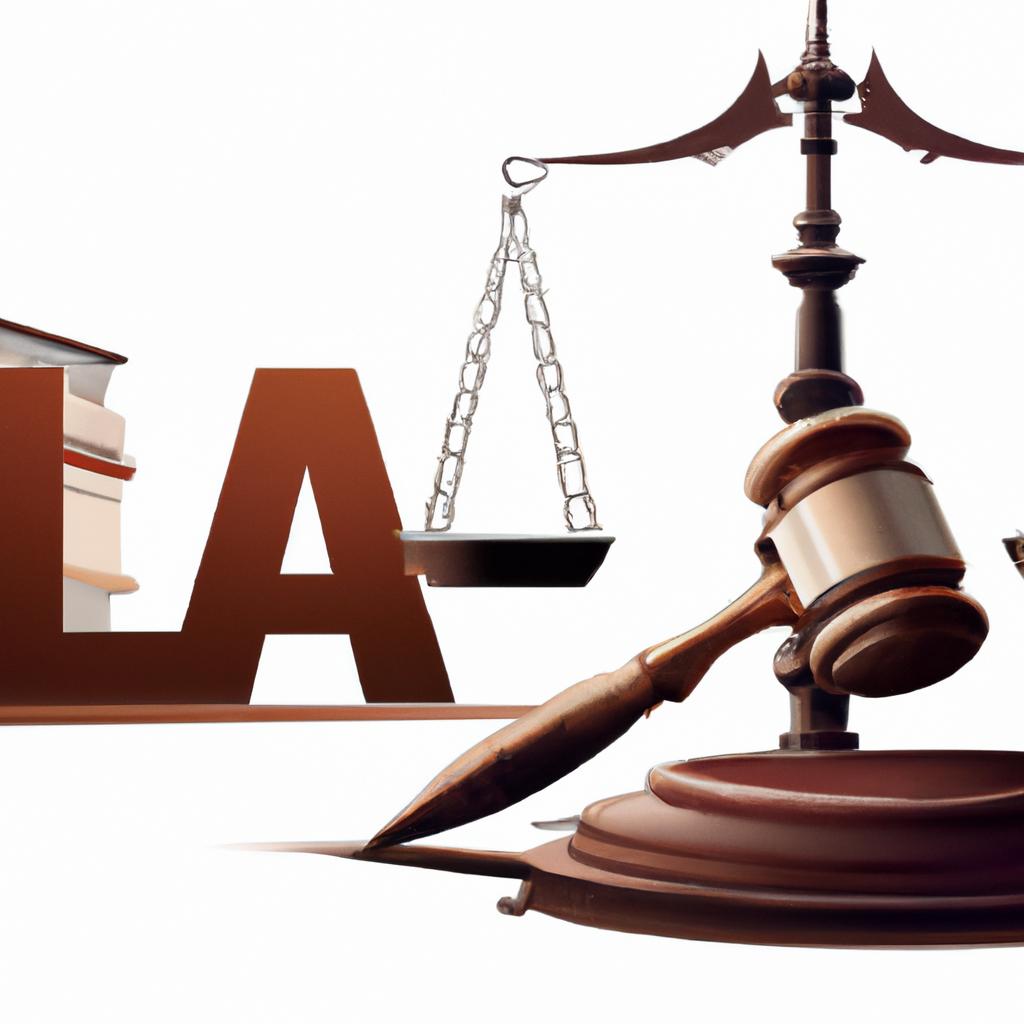In the intricate realm of legal proceedings, the concept of waivers of sureties stands as a testament to the complexities and nuances that permeate the field. As experienced lawyers at Morgan Legal Group in New York City, we navigate through the labyrinthine landscape of estate planning, probate, elder law, Wills, and trusts with an expert eye for detail and a steadfast commitment to clarity and precision. In this article, we delve into the intricacies of waivers of sureties and shed light on the legal intricacies that underpin this crucial aspect of the legal system.
Understanding the Concept of Waiver of Sureties in Legal Agreements
In legal agreements, the concept of waiver of sureties holds significant importance. This provision allows parties to forgo the requirement of having a third-party surety to guarantee the performance of obligations under the agreement. By waiving sureties, parties can streamline the agreement process, reduce administrative burdens, and foster trust between the parties involved. It is essential to understand the implications of waiver of sureties in legal agreements to ensure that all parties are adequately protected and aware of their obligations.
When considering waiver of sureties in legal agreements, it is crucial to assess the risks and benefits associated with such a decision. By waiving sureties, parties may enjoy increased flexibility, reduced costs, and expedited timelines for executing agreements. However, parties must also carefully evaluate the potential risks of waiving sureties, including the lack of financial security in case of default or breach of contract. It is advisable for parties to seek legal counsel when contemplating the inclusion or exclusion of waiver of sureties in their agreements to ensure compliance with applicable laws and regulations.
Key Factors to Consider Before Agreeing to a Waiver of Sureties
When considering whether to agree to a waiver of sureties, it is crucial to thoroughly evaluate the key factors involved to make an informed decision. Here are some important considerations:
- Financial Stability: Assess the financial stability of the individual or entity requesting the waiver. It is essential to ensure that they have the resources to fulfill their obligations in the event of default.
- Risk Assessment: Evaluate the potential risks involved in agreeing to the waiver. Consider factors such as the nature of the transaction, the amount of the bond, and the likelihood of default.
- Trustworthiness: Consider the reliability and trustworthiness of the party seeking the waiver. Check references, conduct background checks, and assess their track record for fulfilling obligations.
Additionally, it is advisable to consult with legal counsel to fully understand the implications of waiving sureties and to ensure that your rights and interests are protected. By carefully considering these key factors, you can make a well-informed decision regarding a waiver of sureties.

Potential Risks and Benefits of Waiving Sureties in Contracts
When considering the , it is important to weigh the advantages and disadvantages carefully. One of the main benefits of waiving sureties is the convenience it offers in streamlining the contracting process. By eliminating the need for sureties, parties can save time and resources that would otherwise be spent on obtaining and managing these security measures.
However, it is essential to recognize the potential risks associated with waiving sureties. Without sureties in place, there is an increased risk of non-performance or default by one of the parties. In the event of a breach of contract, the injured party may face challenges in seeking financial compensation or enforcing the terms of the agreement without the protection of a surety bond. It is crucial for parties to carefully assess the risks involved and consider alternative methods of securing their interests in the absence of sureties.

Recommendations for Safeguarding Interests When Considering Waiver of Sureties
When considering the waiver of sureties in legal matters, it is crucial to take certain precautions to safeguard your interests. Here are some recommendations to keep in mind:
- Thoroughly review the terms: Before agreeing to waive sureties, carefully review the terms and conditions to ensure that they align with your best interests.
- Consult with a legal expert: Seek advice from a knowledgeable attorney who can provide guidance on the implications of waiving sureties and help you navigate potential risks.
- Evaluate the financial impact: Consider the financial implications of waiving sureties, including any potential liabilities or obligations that may arise.
By taking these precautions and seeking professional guidance, you can effectively safeguard your interests when considering the waiver of sureties in legal matters.
Q&A
Q: What is a waiver of sureties?
A: A waiver of sureties is a legal document signed by a party involved in a contract or agreement, in which they agree to waive the requirement of providing a surety or guarantor for the performance of their obligations under the contract.
Q: Why would someone consider waiving sureties?
A: Waiving sureties can save time and money by avoiding the need to secure a surety or guarantor, as well as simplifying the contracting process. It can also give the party more control over their obligations and reduce the risk of default.
Q: Are there any risks associated with waiving sureties?
A: While waiving sureties can provide certain benefits, it also comes with some risks. Without a surety or guarantor, the party may be solely responsible for fulfilling their obligations under the contract and could face financial consequences if they fail to do so.
Q: How can a waiver of sureties be enforced?
A: A waiver of sureties is a legally binding document and can be enforced through the courts if necessary. If one party fails to fulfill their obligations under the contract, the other party may seek legal remedies as outlined in the terms of the agreement.
Q: Is a waiver of sureties common in business transactions?
A: Waivers of sureties are not uncommon in business transactions, particularly in cases where the parties have a preexisting relationship of trust or are dealing with relatively low-risk transactions. However, in some situations, such as large or high-stakes contracts, sureties may still be required.
Insights and Conclusions
In conclusion, understanding the concept of waiver of sureties is essential when entering into certain legal agreements. By waiving the requirement for sureties, parties can streamline processes and potentially save time and resources. However, it is important to carefully consider the implications of waiving sureties before doing so. Being informed and making informed decisions can help mitigate risks and ensure that all parties are adequately protected. Thank you for exploring this topic with us, and we hope you have gained valuable insights into this important legal concept.
 What is a Waiver of Sureties and When is it Needed?
What is a Waiver of Sureties and When is it Needed?
When dealing with legal matters, one term that may come up is “waiver of sureties.” But what exactly does this term mean and when is it needed? In this article, we will discuss the definition of waiver of sureties, its purpose, and why it’s essential to understand it in legal proceedings. We also provide valuable insights, tips, and case studies to give you a better understanding of this crucial legal concept. Whether you are a lawyer, a business owner, or someone dealing with legal matters, this article will provide you with all the necessary information about waiver of sureties.
Definition of Waiver of Sureties
A waiver of sureties is a legal document or agreement that releases a person or entity from the obligation of providing a surety, usually in the form of a financial guarantee, in a legal proceeding. A surety is a third party that guarantees the performance of a contract, the fulfilment of an obligation, or the payment of a debt. It is commonly used in legal proceedings to ensure that the party involved will fulfill their responsibilities and obligations. However, a waiver of sureties allows the party to be released from this obligation.
Purpose of Waiver of Sureties
The primary purpose of a waiver of sureties is to mitigate the financial burden on a party who is required to provide a surety in a legal proceeding. In some cases, providing a surety can be very costly and may even prevent someone from participating in a legal process. For instance, a small business owner may struggle to provide a large sum of money as a surety, which could hinder their ability to defend themselves in a legal dispute. In such cases, a waiver of sureties can be a viable option to avoid financial and legal consequences.
Another purpose of a waiver of sureties is to provide flexibility in legal proceedings. In some situations, the court may require the presence of a surety to ensure that the party involved will comply with legal requirements. However, a waiver of sureties can be useful in situations where a surety is not needed or when providing one is not feasible. It allows the party to move forward with the legal process without being constrained by the requirement of a surety.
When is a Waiver of Sureties Needed?
A waiver of sureties is typically needed in situations where the requirement of a surety may create an unfair or undue burden on the party involved. Here are some circumstances where a waiver of sureties may be necessary:
1. Business Transactions: In business transactions, a waiver of sureties can be useful to avoid the costs associated with providing a surety. For example, in a contract where a party is required to pay a bond, a waiver of sureties can provide financial relief by releasing them from this requirement.
2. Legal Proceedings: In legal proceedings, a court may require a party to provide a surety as a condition for granting a stay of proceedings or other benefits. In such cases, a waiver of sureties can be necessary, especially if the party cannot afford to provide a surety or if the surety requirement is unreasonable.
3. Bail for Court Appearances: When a person is arrested and brought before a court, they may be required to pay a certain amount of money as surety to be released on bail. In situations where the person cannot pay the bail amount, a waiver of sureties can allow them to be released without providing a surety.
Benefits of Waiver of Sureties
1. Cost Savings: One of the primary benefits of a waiver of sureties is the significant cost savings for the party involved. Providing a surety can be a considerable financial burden, but with a waiver of sureties, the party can avoid this cost entirely.
2. Flexibility: As mentioned earlier, a waiver of sureties provides flexibility by allowing a party to move forward in a legal process without being constrained by a surety requirement. This flexibility can be vital in situations where the party may not have the resources to provide a surety.
3. Efficient Legal Process: By releasing a party from the obligation of providing a surety, legal proceedings can be carried out more efficiently. It eliminates the need to go through the process of obtaining a surety, which can be time-consuming and costly.
Practical Tips for Using a Waiver of Sureties
If you are considering using a waiver of sureties, here are some practical tips to keep in mind:
1. Understand the Legal Implications: Before entering into any legal document, it is crucial to understand the legal implications. A waiver of sureties should only be used in situations where it is necessary and appropriate and where the consequences have been carefully considered.
2. Seek Legal Advice: It is always advisable to seek legal advice when dealing with legal matters. A lawyer can provide you with insights and advice on whether a waiver of sureties is the best option for your situation.
3. Use a Well-Drafted Document: Using a well-drafted document that clearly outlines the terms and conditions of the waiver of sureties is essential. It is crucial to ensure that all parties involved understand the agreement and its implications.
Case Study
In a recent case, a small business owner was involved in a legal dispute with a larger corporation. The court required the business owner to provide a surety of $100,000 to continue with the legal proceedings. This requirement was a significant financial burden for the business owner, and it seemed like they would have to drop the case due to their inability to provide the surety. However, with the help of their lawyer, they were able to negotiate a waiver of sureties, which allowed them to proceed with the legal proceedings without the financial burden of providing a surety.
In conclusion, a waiver of sureties is a legal document that releases a party from the obligation of providing a surety in a legal proceeding. It can provide significant cost savings, flexibility, and efficiency in legal proceedings. However, it is essential to carefully consider the legal implications and seek legal advice before entering into such an agreement. With the tips and insights provided in this article, we hope you have a better understanding of the concept of waiver of sureties and when it is needed.

